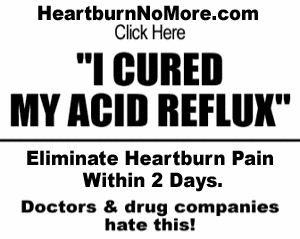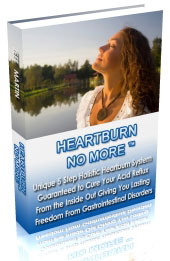eating spicy foods or drinking alcoholic beverages or smoking. However, this is not totally true.
Dr. Anish Sheth, a gastroenterologist and assistant professor of medicine at Yale University stated that there are 7 causes of heartburn acid reflux and they are often lifestyle factors.
The following are the 7 possible causes.
1. Sphincter has low pressure
Acid reflux occurs when the acidic contents of the stomach pass up into the esophagus, and the sphincter muscle (the barrier between the two) has a defect, so it is unable to block the acid.
If the sphincter muscle has low pressure, it causes acid reflux.
“Some people just have a low pressure, and we don’t know why,” Sheth said. “Pregnancy can lower the pressure, as can blood pressure and depression medications. But, most of the time, we don’t know what causes it.”For patients who suffer from a low-pressure sphincter, there is hope: a minimally invasive surgery known as fundoplication can provide relief.
2. Pregnancy
“Elevated progestin hormones cause the pressure of the sphincter to go down,” Sheth said. “And the increased pressure of the growing uterus predisposes the woman to acid reflux.”The good news is that once the pregnancy is over, the symptoms of acid reflux are likely to disappear.
3. Hiatal Hernia
A hiatal hernia is very common (at least 40 percent of Americans have them) and doesn’t necessarily cause acid reflux, Sheth said.
However, in a subgroup of patients with very severe reflux, a hiatal hernia – where the upper portion of the stomach moves upward into the chest – can cause acid to reflux, Sheth added.Hiatal hernias can range in size from 1 to 4 centimeters. They can be repaired during fundoplication surgeries.
4. Gastroparesis
This is a disorder in which the stomach takes too long to empty its contents.
“Normally, the acid is produced and emptied into the small intestine, but if it sits in the stomach for longer, by sheer logic, it will come back up into the esophagus,” Sheth said.5. Obesity
“Even though obesity is a lifestyle issue, it’s also something that can go overstated,” Sheth said.
“Obesity increases the pressure in the stomach area, so for people who don’t have the other medical causes, the sheer presence of obesity will cause them to have acid reflux.”6. Bisphosphonates
This class of drugs prevents and treats osteoporosis in women and, occasionally, cause acid reflux in users.
“They stand out,” Sheth said. “They don’t necessarily cause reflux, but they can cause esophageal irritation, which can feel like heartburn.”
Sheth added it is always worth a quick review of any medication that you are taking long-term to see if acid reflux is one of its side effects.
7. Lifestyle
People who have heartburn "every now and then" may benefit from making lifestyle changes, Sheth said.
If they decrease their chocolate and/or caffeine intake (or other food or beverages that may irritate their symptoms), lose weight and stop smoking, they are likely to see a reduction in acid reflux symptoms, he said.
It is better to take care now than regret later. By making some changes to your lifestyle, it can only improve your health and make life happier and easier for you. Try it today.









